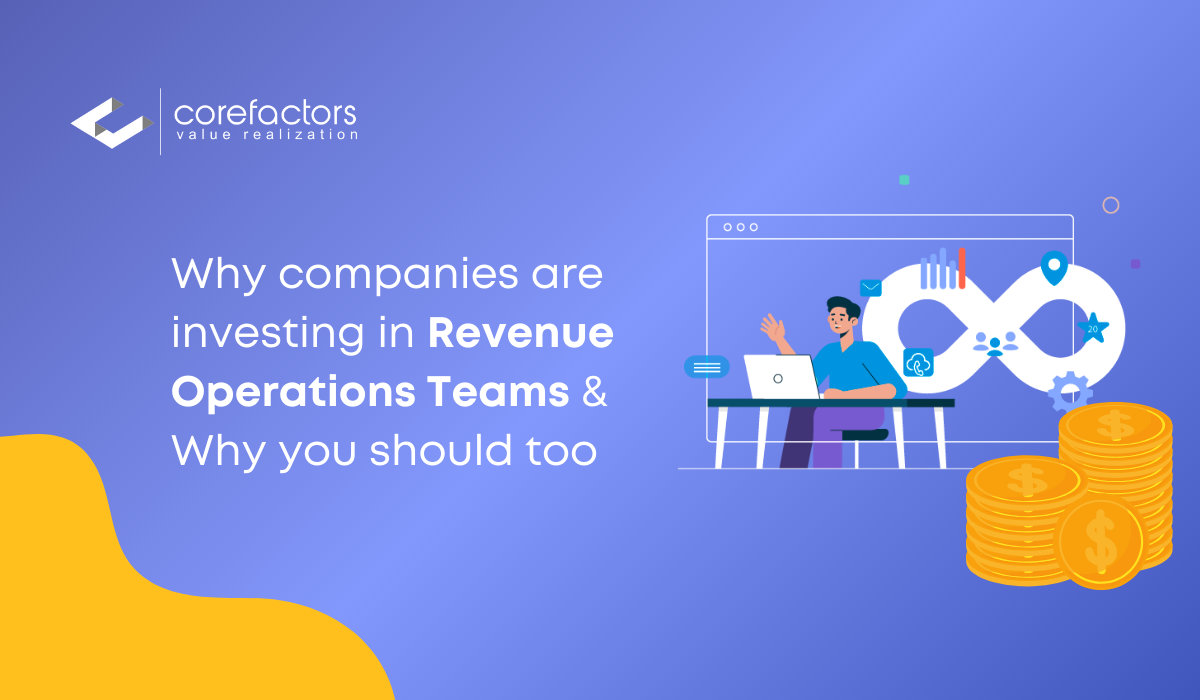
Companies are placing their bets on their Revenue Operations (RevOps) teams for several compelling reasons, and this trend extends well beyond the realm of Software as a Service (SaaS). Here’s why you should consider investing in RevOps too:
The Evolution of RevOps
1. Technology Integration: The adoption of technology across product development and sales cycles has revolutionized business operations. Advanced tools are now enabling companies to collect and analyze vast amounts of data, providing deep insights into every stage of their buyer’s journey.
2. Data Accessibility and Utilization: The explosion of data accessibility allows companies to optimize their revenue cycles. The depth and interconnectedness of this data enable businesses to understand customer behavior, predict trends, and make informed decisions.
3. Changing Buyer Behavior: Today’s buyers are highly informed and research products and services extensively before engaging with suppliers. This shift necessitates a proactive approach where suppliers target potential customers with relevant information throughout their decision-making process.
The Growing Importance of RevOps
1. Centralization of Revenue Functions: A Forrester report shows that 90% of companies are moving towards centralizing their revenue-related functions. This centralization streamlines processes and enhances efficiency across marketing, sales, product development, and customer success. When all your revenue-generating teams will work under one single platform, they’ll be better evaluting the inputs and serving improved outputs for the next team to optimize.
2. Increased Visibility and Insights: With RevOps, companies gain a clearer view of their customer’s journeys. By tracking digital breadcrumbs left by potential customers, businesses can tailor their strategies to meet specific needs, improving communication and sales processes.
3. Enhanced Decision-Making: The insights gathered from customer interactions help refine marketing strategies, prioritize product features, and improve retention rates. This holistic view of the revenue cycle empowers CEOs and business leaders to make strategic decisions that drive growth.
Industry Adoption Beyond SaaS
1. Broad Applicability: While initially prevalent in the B2B software sector, RevOps is now gaining traction across various industries, including healthcare and hospitality. These sectors recognize the value of optimizing revenue cycles and are actively investing in RevOps functions.
2. Diverse Job Market: According to LinkedIn data from September 2023, healthcare and hospitality sectors lead in posting RevOps positions. Nearly 50% of current job openings are in these fields, reflecting the widespread recognition of RevOps’ benefits.
The Future of RevOps
1. Comprehensive Solutions: A variety of RevOps providers offer solutions ranging from end-to-end systems to standalone tools. CRM platforms like Salesforce, Hubspot, and Zendesk, along with data intelligence platforms like Clari and Gong, play pivotal roles in this ecosystem. Before you start thinking that enabling RevOps may cost a lot on your pocket with either resource hiring or implementing a high-cost CRM, here’s another option. Corefactors is a RevOps-enabled CRM, which is an affordable platform that brings your revenue-generating teams together to work in sync.
2. Cross-Industry Adoption: The value of RevOps is not confined to any single industry. As more sectors realize the potential of data-driven revenue optimization, the demand for RevOps expertise will continue to grow.
Conclusion
Investing in RevOps is no longer an option but a necessity for companies aiming to stay competitive. By harnessing the power of data and integrating revenue-related functions, businesses can achieve faster, more informed decision-making, ultimately accelerating revenue growth. Whether in SaaS, healthcare, hospitality, or any other industry, the principles of RevOps offer a pathway to enhanced operational efficiency and sustained success.











